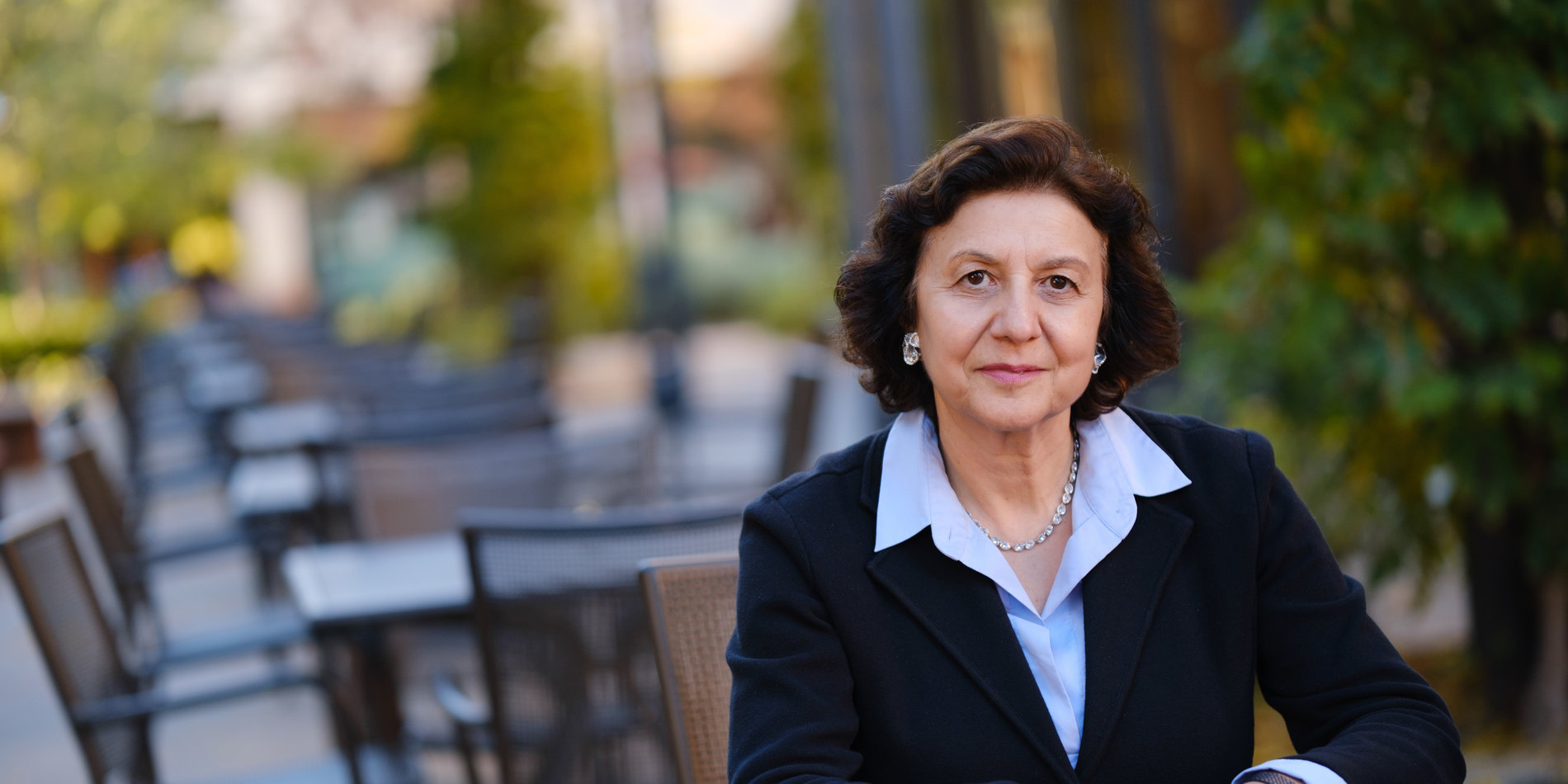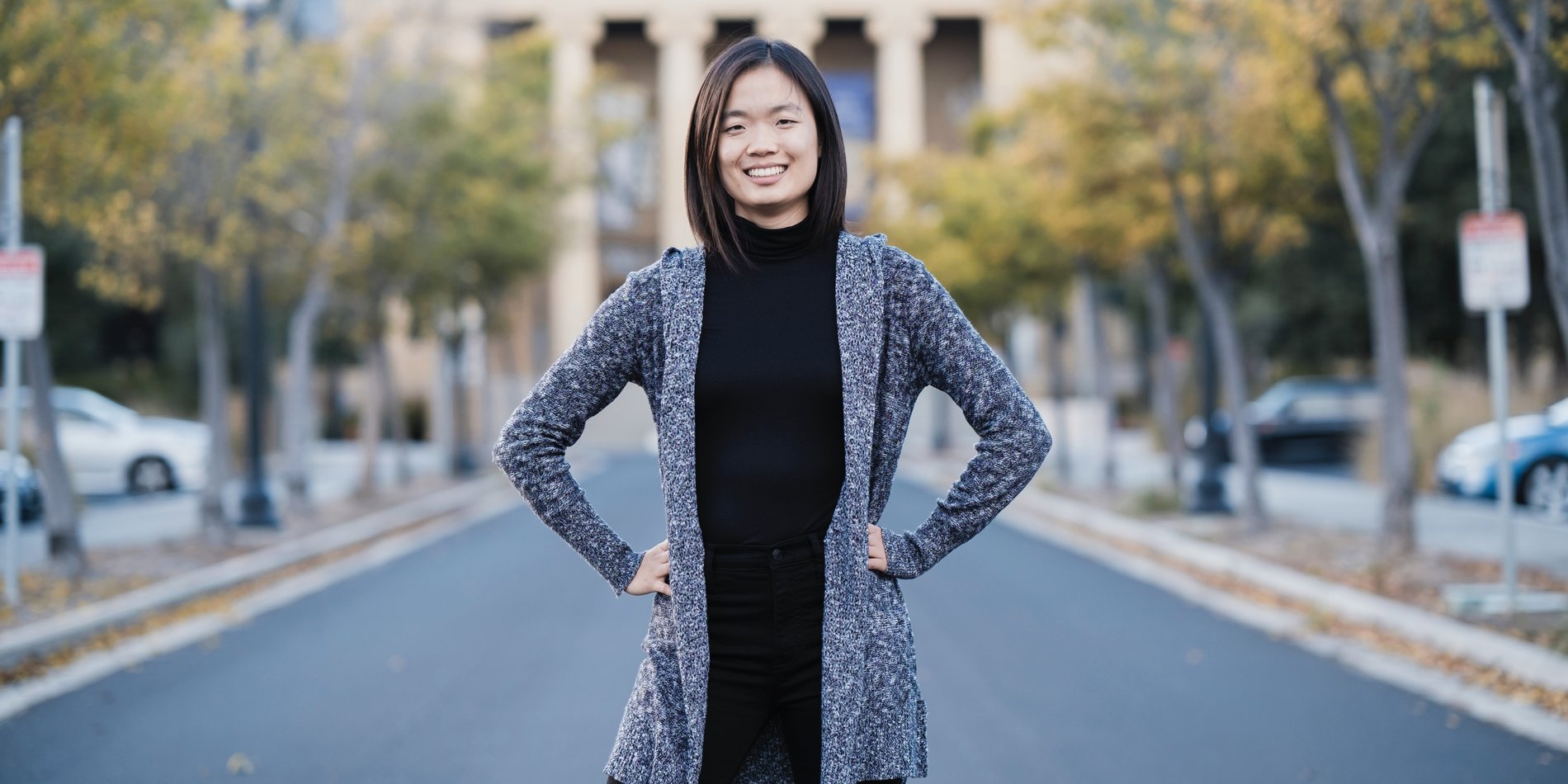Olivia Martin, PhD and JD student
This story is part of the Why Econ? series. Our affiliated students and faculty share why econ matters to them, their work, and our world.
It was sophomore year, and Olivia Martin thought she was staring at a typo on the whiteboard. On the first day of class for an economics seminar on measuring government performance through data, a presentation slide described the course using the plural, “governments.”
Until then, Martin had only considered Washington, D.C. to be ground zero for policymaking. But, as she soon came to appreciate, there are roughly 90,000 governments across the United States, and over the next 10 weeks, she and her classmates learned how to evaluate their effectiveness through statistics.
The Stanford course was an eye-opener, changing Martin’s belief that the science of economics and policymaking had little do with each other. “I had never put two and two together — that the people who shape what our policies as a country look like are all using the language of economics to set and justify their goals,” she says.
The course also marked a personal turning point. Martin grew up “a happy beach kid” in San Diego, the daughter of a neurologist who immigrated from Haiti as a teenager. Her father’s memories of living in a dictatorship gave Martin a heightened appreciation for democratic freedoms and inspired a passion for government policymaking as a tool for addressing social inequities. From her first day as an undergrad, she became deeply involved in — and eventually led — Stanford in Government (SIG), one of the university’s largest student groups.
The sophomore seminar on government performance taught her the importance of empirical evidence in designing and assessing policies. She subsequently declared economics as a major, and through the support of the Stanford Institute for Economic Policy Research (SIEPR), she had the opportunity to work on research projects and meet scholars and policymakers who explained how the tools of economics uniquely prepared them for government work. She also interviewed then-California Governor Jerry Brown as a moderator at an event sponsored by SIEPR and SIG.
Martin returned to the Farm in 2021 as a Knight-Hennessy Scholar to pursue a PhD in economics and a JD from Stanford Law School after working for two years at USAFacts — a nonprofit initiative launched by Steve Ballmer, who co-taught the inspirational government class. Her long-term goal? To shape policy through the lens of an economist — one who both understands the law and the personal experiences of the lives she’s working to improve.
More Why Econ Stories
-

Annamaria Lusardi, Senior Fellow
When Annamaria Lusardi greets students on the first day of her class on personal finance, she sets the record straight: She isn’t teaching them just how to save or invest. -

Emma Hou, '24
Emma Hou stumbled onto economics by chance. As a high school junior visiting her brother at Stanford, she dropped into an introductory economics course. That first step led to a much longer journey. -

Kwabena Donkor, Faculty Fellow
For Kwabena Donkor, driving a New York City taxi while studying economics in college was grueling. He’d wake up before 3 a.m. on Sundays to stand in line to lease a cab, then work a 24-hour shift straight.
